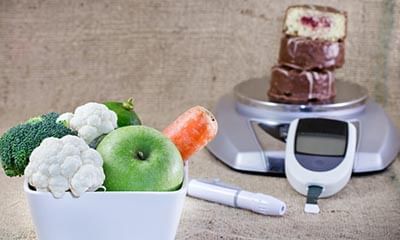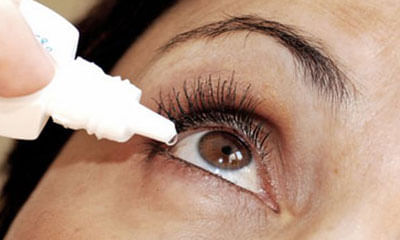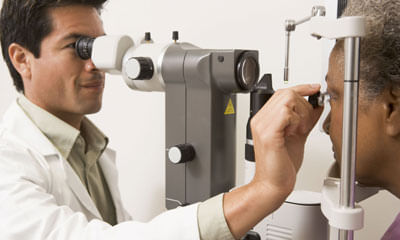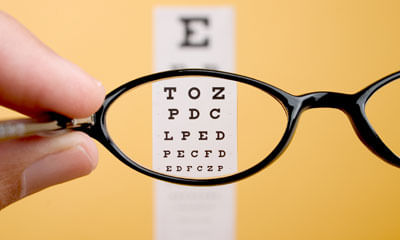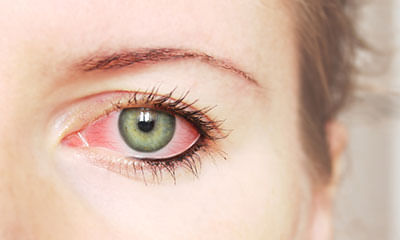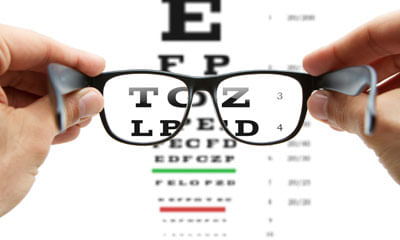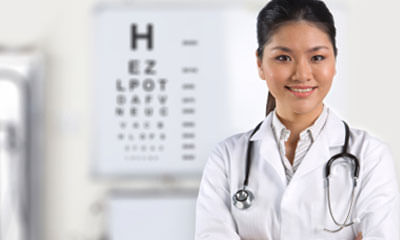Blood Clot In Eye Retina
Hello Dr. Sahib ji. Is there any best diabetic medicine available for diabetes without any serious side effect. Tribet r ...
Ask Free Question
Consider trying himalaya diabecon ds, I have seen exceptional results with it. It is natural and safe. Also add nestle resouce diabetic, you will see immediate results.
Meri mother ki aankh m glaucoma h right eye ka motiya bind ka opration ho gaya h lekin left eye bilkul dhundali ho gayi ...
Ask Free Question
ye problem blood thinner medicine ke madhyam se thik ho sakta hai apne opthalmologist se regular consult karte rahe.thori si bhi laparwahi us eye sight ko complete blindness kar sakti hai
My brother has recently tested kidney function. His creatinine level found is 4.5. He is diabetic and high bp. Recently ...
Ask Free Question
Hello. Avoid meat especially red meat, dairy products, chicken, eggs, milk, cheese, salt, otcpainkiller, smoking, alcohol. Avoid strenous exercise. Eat fruits, vegetables, whole grains, legumes, green tea, drink 6-7 glases of water per day, take good sleep. Homoeopathic treatment reduce sr creatinine levels. You can consult me online for best homeopathic treatment.
I had 4 recurrent retinal detachment surgery SB+EL PPVIT+EL+SOI RR+LPFC+EL+RSOI RR+EL+RSOI now I am, having blood clot i ...
Ask Free Question
Looks like yours is a difficult or complicated situation. It will be desirable to follow your operating surgeon's strategy. You may take another Retinal surgeon's opinion if you wish. On an online platform like this, difficult to comment without assessment.
What is the plus points of eating carrot and beetroot and what is the advantages of it. ...
Ask Free Question
Right from the Middle Ages, beetroot has been used not just as food, but also as a treatment for numerous conditions. Popularly known as beetroot, the vegetable is called Chukandar. Beets have been used for a long time as a treatment for anemia. The juice of beets is concentrated into soluble crystals, which can be mixed with another drink and taken. Full of other nutrients like iron, manganese, copper, potassium, and magnesium – all of which have their individual benefits. Even raw beets have terrific benefits – one of them being the ability to prevent cancer. Not just the vegetable, but even the leaves have something to offer. Beet greens, as we call them, are packed with fiber and protein. They also contain vitamin K (blood clotting properties) and calcium (for strong bones and teeth. Carrots are rich in beta-carotene, which is converted into vitamin A in the liver. Vitamin A is transformed in the retina, to rhodopsin, a purple pigment necessary for night vision. Beta-carotene in carrots acts as an antioxidant to cell damage done to the body through regular metabolism. It help slows down the aging of cells. Reduce the risk of lung cancer, breast cancer and colon cancer.
Retinal haemorrhage is a disorder of the eye in which bleeding occurs into the retina. The retina is a thin disc-shaped ...
Ask Free Question
TREATMENT OPTIONS FOR RD- Laser surgery (photocoagulation) With laser surgery, your ophthalmologist uses a laser to make small burns around the retinal tear. Freezing treatment (cryopexy) Scleral buckle. Pneumatic retinopexy. Vitrectomy.
I am 38 years old. No BP & sugar. I got twice retina blood clot which went away on its own. Reasons for this told by ret ...
Ask Free Question
this is wrong statement that putting pressure during defecation is cause of retinal bleeding, retinal bleeding is due to some other reasons what ever find out after complete history and after careful examination. But your concern is constipation take some laxative in ayurveda like triphala, Panchsakar choorna, avipattikar choorna or abhyarista at bed time, you should also use ghee in your diet regularly at night meal if not clear plan for panchkarma treatment (ayurvedic procedure for purification of body eg gut also) for check retinal bleeding you should use of herbs know as adhatoda vasaka as decoction if you want to more about any things please consult online to me
Hi my mom has some high BP and her right eye has got blood clot. When it will be alright she consult to doctor he has gi ...
Ask Free Question
Hi, you mean haemorrohogic spots on retina in right eyes due to high bp. She should maintain all sorts of anti hypertensive measures to check further enhancement of spots. Give her homoeo medicines: gentle, rapid & with no side effects, thereof. @ staphysagria 20-6 pills, thrice a day. @ arnica mont 200- 6 pills, thrice a day. Tk, apples, carrots, cheese, spinach, milk, mangoes. Go for meditation for 30 mnts. Tk, plenty of water to eliminate toxins. Ensure sound sleep in d night. Tk, care.
What are the side effects of smoking? As it causes cancer what type of cancer it may cause? Is it curable for such th8ng ...
Ask Free Question
Overview Cigarette smoking harms nearly every organ of the body, causes many diseases, and reduces the health of smokers in general. 1, 2 Quitting smoking lowers your risk for smoking-related diseases and can add years to your life. 1, 2 Smoking and Death Cigarette smoking is the leading preventable cause of death in the United States. 1 •Cigarette smoking causes more than 480, 000 deaths each year in the United States. This is nearly one in five deaths. 1, 2, 3 •Smoking causes more deaths each year than the following causes combined: 4 oHuman immunodeficiency virus (HIV) OIllegal drug use OAlcohol use OMotor vehicle injuries OFirearm-related incidents •More than 10 times as many you. S. Citizens have died prematurely from cigarette smoking than have died in all the wars fought by the United States during its history. 1 •Smoking causes about 90% (or 9 out of 10) of all lung cancer deaths in men and women. 1, 2 More women die from lung cancer each year than from breast cancer. 5 •About 80% (or 8 out of 10) of all deaths from chronic obstructive pulmonary disease (COPD) are caused by smoking. 1 •Cigarette smoking increases risk for death from all causes in men and women. 1 •The risk of dying from cigarette smoking has increased over the last 50 years in men and women in the United States. 1 Smoking and Increased Health Risks Smokers are more likely than nonsmokers to develop heart disease, stroke, and lung cancer. 1 •Smoking is estimated to increase the risk— oFor coronary heart disease by 2 to 4 times1, 6 OFor stroke by 2 to 4 times1 OOf men developing lung cancer by 25 times1 OOf women developing lung cancer by 25.7 times1 •Smoking causes diminished overall health, increased absenteeism from work, and increased health care utilization and cost. 1 Smoking and Cardiovascular Disease Smokers are at greater risk for diseases that affect the heart and blood vessels (cardiovascular disease). •Smoking causes stroke and coronary heart disease, which are among the leading causes of death in the United States. 1, 3 •Even people who smoke fewer than five cigarettes a day can have early signs of cardiovascular disease. 1 •Smoking damages blood vessels and can make them thicken and grow narrower. This makes your heart beat faster and your blood pressure go up. Clots can also form. 1, 2 •A stroke occurs when a clot blocks the blood flow to part of your brain or when a blood vessel in or around your brain bursts. 1, 2 •Blockages caused by smoking can also reduce blood flow to your legs and skin. 1, 2 Smoking and Respiratory Disease Smoking can cause lung disease by damaging your airways and the small air sacs (alveoli) found in your lungs. 1, 2 •Lung diseases caused by smoking include COPD, which includes emphysema and chronic bronchitis. 1, 2 •Cigarette smoking causes most cases of lung cancer. 1, 2 •If you have asthma, tobacco smoke can trigger an attack or make an attack worse. 1, 2 •Smokers are 12 to 13 times more likely to die from COPD than nonsmokers. 1 Smoking and Cancer Smoking can cause cancer almost anywhere in your body: 1, 2 (See figure above) •Bladder •Blood (acute myeloid leukemia) •Cervix •Colon and rectum (colorectal) •Esophagus •Kidney and ureter •Larynx •Liver •Oropharynx (includes parts of the throat, tongue, soft palate, and the tonsils) •Pancreas •Stomach •Trachea, bronchus, and lung Smoking also increases the risk of dying from cancer and other diseases in cancer patients and survivors. 1 If nobody smoked, one of every three cancer deaths in the United States would not happen. 1, 2 Smoking and Other Health Risks Smoking harms nearly every organ of the body and affects a person’s overall health. 1, 2 •Smoking can make it harder for a woman to become pregnant and can affect her baby's health before and after birth. Smoking increases risks for: 1, 2, 5 oPreterm (early) delivery OStillbirth (death of the baby before birth) OLow birth weight OSudden infant death syndrome (known as SIDS or crib death) OEctopic pregnancy OOrofacial clefts in infants •Smoking can also affect men's sperm, which can reduce fertility and also increase risks for birth defects and miscarriage. 2 •Smoking can affect bone health. 1, 5 oWomen past childbearing years who smoke have weaker bones than women who never smoked, and are at greater risk for broken bones. •Smoking affects the health of your teeth and gums and can cause tooth loss. 1 •Smoking can increase your risk for cataracts (clouding of the eye’s lens that makes it hard for you to see) and age-related macular degeneration (damage to a small spot near the center of the retina, the part of the eye needed for central vision. 1 •Smoking is a cause of type 2 diabetes mellitus and can make it harder to control. The risk of developing diabetes is 30–40% higher for active smokers than nonsmokers. 1, 2 •Smoking causes general adverse effects on the body, including inflammation and decreased immune function. 1 •Smoking is a cause of rheumatoid arthritis. 1 Quitting and Reduced Risks •Quitting smoking cuts cardiovascular risks. Just 1 year after quitting smoking, your risk for a heart attack drops sharply. 2 •Within 2 to 5 years after quitting smoking, your risk for stroke could fall to about the same as a nonsmoker’s. 2 •If you quit smoking, your risks for cancers of the mouth, throat, esophagus, and bladder drop by half within 5 years. 2 •Ten years after you.
Sir tell me. Eys medicine. My left eyes in come blood. I mean jam gya h. And no left eyes look. ...
Ask Free Question
The retina is the light- sensitive layer of tissue that lines the back of your eye. The retina is vital for vision. Retina requires a constant supply of blood to make sure your cells (Rods and cones) get enough nutrients and oxygen. However, it’s possible for one of the vessels carrying blood to or from the retina to become blocked or have a blood clot. This is called an occlusion and this can cause blood or other fluids to build up and prevent the retina from properly filtering light. When light is blocked or fluids are present, a sudden loss of vision can occur. The severity of vision loss may depend on where the blockage or clot occurred. Retinal vascular occlusion is a potentially serious condition, especially if hardening of the arteries, or atherosclerosis, already exists. It most often occurs in middle-aged and elderly people. -------------------------------The specific cause of vascular blockage or blood clots in the retina is unknown. It may occur when the veins of the eye are too narrow. However, other factors that affect blood flow can put you at a higher risk of having retinal vascular occlusion. These risk factors include:------------- •atherosclerosis, or hardening of the arteries-------------------- •blood clots, which often travel from elsewhere in the body to the eye--------- •a blockage or narrowing in the carotid arteries of the neck----------- •heart problems, including irregular rhythm or valve issues-------------- •diabetes----------- •high blood pressure-------- •high cholesterol----------- •intravenous (IV) drug use------------- •glaucoma, which is a condition that damages your optic nerve----------- •smoking-------------- •rare blood disorders---------------- •macular edema, which is fluid buildup, swelling, and thickening of the central part of the retina------------------------------- --------------------So Mr. Sharma please consult your Family doctor immediately so that he can diagnose the cause of your Eye clot thet whether it is a localized problem in the Eye or the roots are some where else in your body and he will guide you future course of ytreatment along with consulting an Opthalmologist---------------------------Don’t waste time-----------

